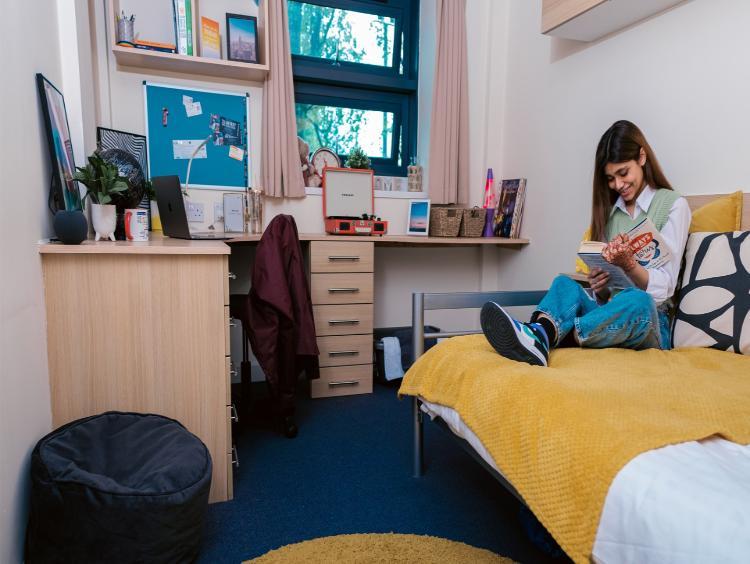Why sleep is important for student mental health and wellbeing

Our Mental Health advisor, James Ewens, talks through one way we can all improve our wellbeing, whilst also boosting our learning performance and memory.
He describes this activity as a “democratic, freely available, efficacious health care system”:
- On average we do this for 25-30 years.
- When we do it, parts of our brain are very active.
- Our brain shrinks when we do it.
- The longest period without it recorded has been 11 days.
So, what is he talking about? If you’ve not guessed already … he’s talking about sleep.
Matthew Walker, in his book ‘Why We Sleep: The New Science of Sleep and Dreams,’ argues sleep is the single most effective thing we can do to reset our brain and body health each day (Walker, 2017).
The research he shares points to sleep being vitally important to our health and wellbeing, as well as playing a significant part in our learning performance and memory.
“Your future depends on your dreams, so go to sleep.” Mesut Baranzay.
Some key points from Matthew Walker’s writing in relation to university study and learning are that:
- Sleeping aids study and learning – at night, the brain cleans out unnecessary information from the day to clear space for more memory.
- If we don’t sleep, we are more likely to forget the important things we have learnt. Sleep helps move them into longer term memory.
- We problem solve when asleep. Think about the common parlance often used by people “you should sleep on it”, a good phrase to keep in mind if you’re struggling with a tricky assignment for example.
Sleep and Wellbeing
You are not alone if you are feeling stressed at university and if your sleep is struggling as a result.
Sleep is an activity that we all participate in, and it’s something we don’t think about too often, unless we are struggling with it. Being unable to get good sleep can be incredibly frustrating and even debilitating. We all know that we don’t feel good after a poor night’s sleep, and we can often be more irritable and short-tempered.
Not only does sleep affect our moods, but our mood and our mental state can also affect our sleep.
Feeling anxious increases levels of agitation, which makes it harder to sleep. Stress also affects sleep by making the body more awake and alert. People who are under constant stress, or who have an exaggerated response to stress tend to have sleep problems.
So how do we sleep better?
“Don’t fight with the pillow, but lay down your head, and kick every worriment out of the bed.” — Elie Wiesel, Night
Sleep Hygiene practice describes habits and practices that are conducive to sleeping well on a regular basis.
James has collated some tips for improving your sleep hygiene:
- Set a consistent sleep schedule- go to bed and wake up around the same time every day.
- Create a pre-bedtime routine- your brain will recognise that this routine is getting you ready for sleep. Read a book, listen to a podcast, meditate, try out different things and see what works for you.
- Get regular exercise- the rest you get during sleep after exercising in the day will be more satisfying.
- Don’t use alcohol to help you sleep- alcohol actually disrupts sleeping patterns and makes your sleep lighter.
- Keep a pen and paper next to your bed- write down any worries that may come to mind for you to deal with the next day.
Headspace, the Sleep Charity and MindWell have great resources if you would like to learn more about sleep hygiene.
For a more detailed read, you can look at this NHS produced self-help guide, Sleeping Problems.
If you are requiring support whilst at WU, then ASK is the first point of call for students if you have any questions about accessing support or if you are unsure where to go.
You can get in touch with us by visiting us in the ASK hubs in the Library and Student Support Centre or St Asaph main reception. Alternatively, you can contact us via 01978 294421 or ask@wrexham.ac.uk.